
Young Academy Leiden: young researchers drastically affected by lockdown
Childcare, no access to labs and extra time for online teaching. These are the main reasons why young researchers at Leiden University have seen a significant drop in their productive working hours since the beginning of lockdown. These are the results of a Young Academy Leiden survey of over 200 early-career academics.
Young Academy Leiden (YAL) is a platform that brings together young, enthusiastic and driven early-careers academics (post-PhD). It focuses on interdisciplinarity, science and education policy and outreach, and represents the interests of early-career researchers. YAL member Annemarie Samuels says, ‘At YAL we were increasingly hearing about how the corona measures were having a huge impact on our community. We wanted to find out more.’ Over the past few weeks, YAL held an online survey, which was completed by over 200 young academics. It also held an interfaculty lunch meeting, with 40 colleagues talking about the topic. YAL has now collated the results of the survey and the meeting to produce a policy paper.
Drop in productive working hours
Stéphanie van der Pas and Anouk Goemans, both YAL members, analysed the results of the survey. Van der Pas says, ‘It is worrying to see the extent to which the productive working hours have decreased. Of the respondents, 72% said that their productive working hours had decreased and they reported an average decrease of 40%. Of those with children, 91% reported a decrease in their productive working hours. Childcare was mentioned as the main reason for this reduction, but lack of access to labs, ongoing data collection being halted and the extra time needed for online teaching were also mentioned.’
Goemans adds: ‘Academics who have a temporary contract said in the survey that they were very worried. They feel particularly vulnerable because they may not have been able to finish their research before the end of their contract and because of uncertainty about the job market and future research grants. In our policy paper we therefore ask the University to lobby nationally for an extension to the contracts of temporary research staff, for instance at NWO, ZonMW and central government.’
-
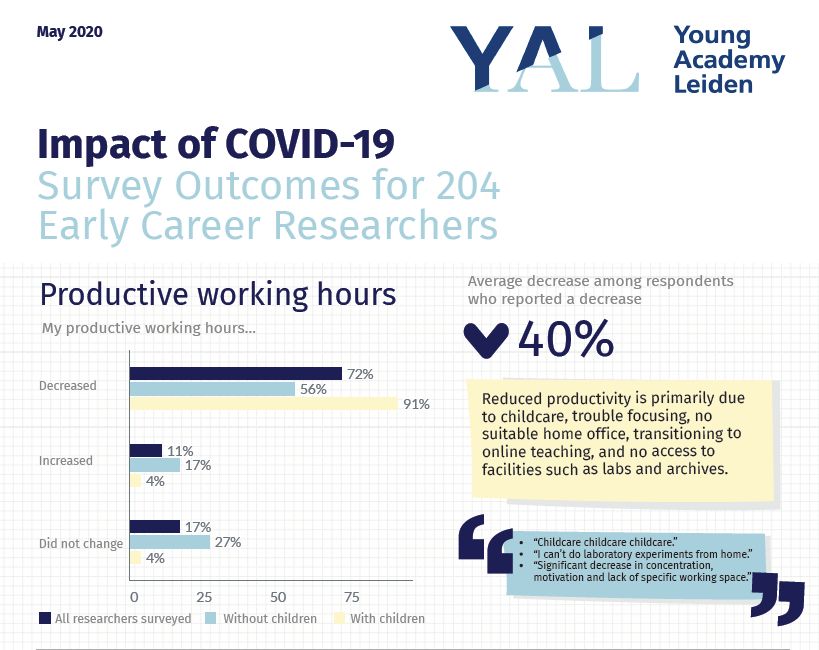
The results of the YAL survey of over 200 young academics -
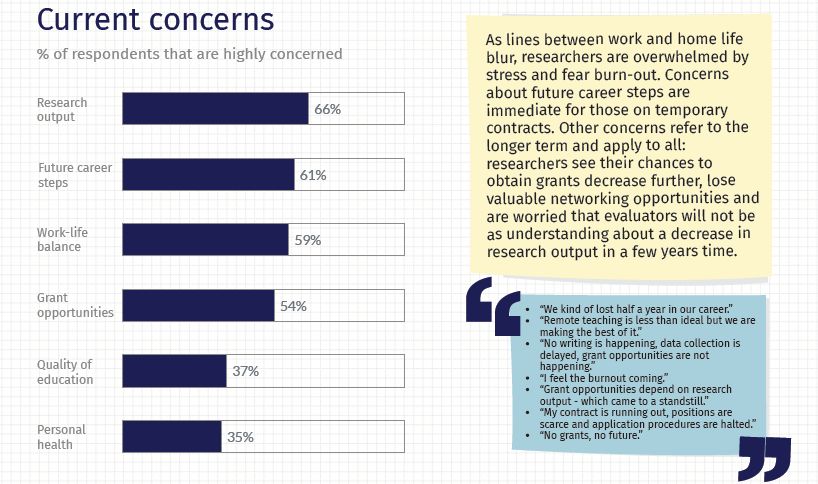
-
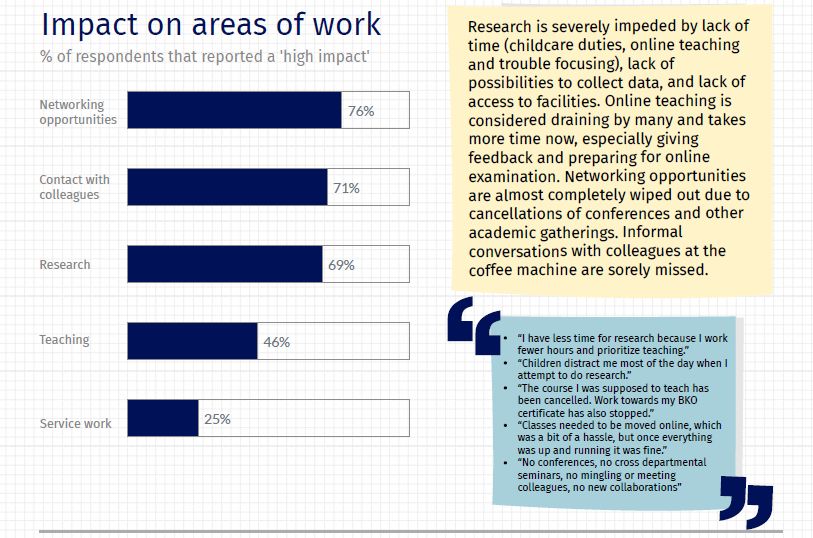
-
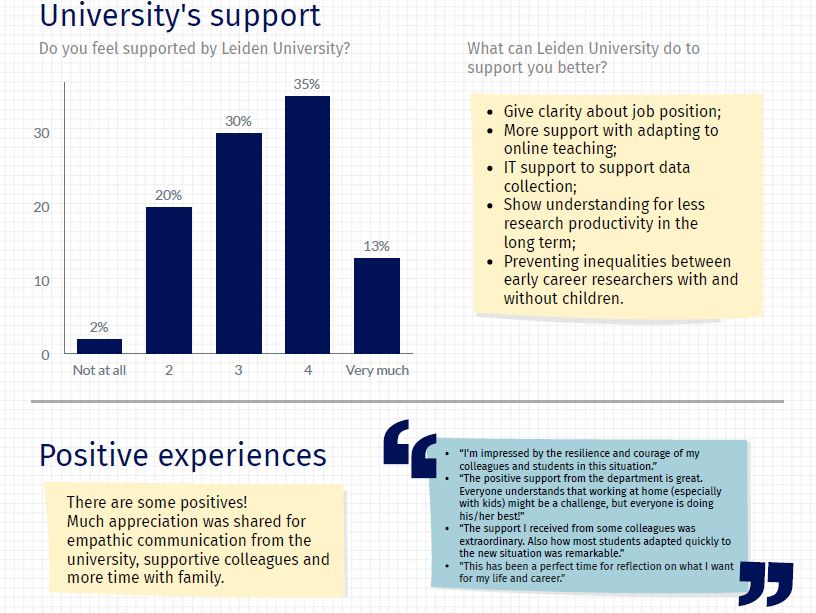
-
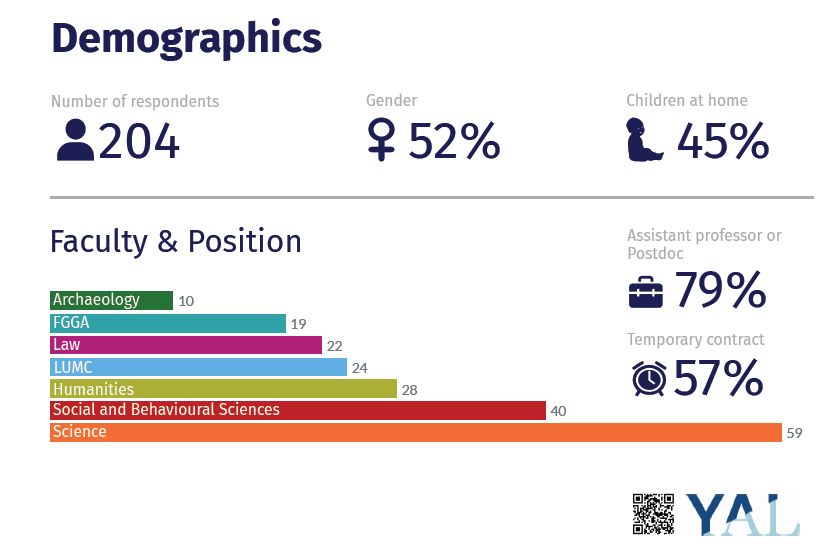
Supporting colleagues
In the policy paper YAL summarises the key findings and makes a number of recommendations about how to improve the situation. Joris Larik wrote a large part of the paper. ‘Many young researchers are concerned about the inequalities that may arise between those who can and those who can’t continue their research. We are specifically asking the University to ensure that in the coming years selection boards take account of the effects of the reduced productivity that some candidates may have experienced in this period. Managers should also take this into account in performance and development interviews.’
The respondents also shared many positive experiences in the survey, collegiality for instance. YAL chair Tom Louwerse is pleased with this. ‘In this period we have to make sure that more pressure isn’t piled on colleagues who are feeling the pressure already. We hope that the changes that we are now seeing will lead to a more general overhaul of the way in which we organise research and teaching so that the University will emerge from this crisis more resilient and sustainable.’
